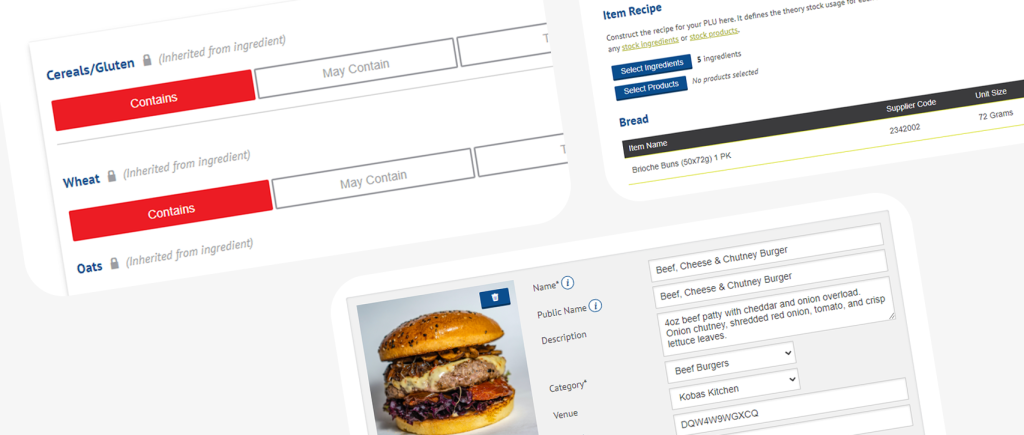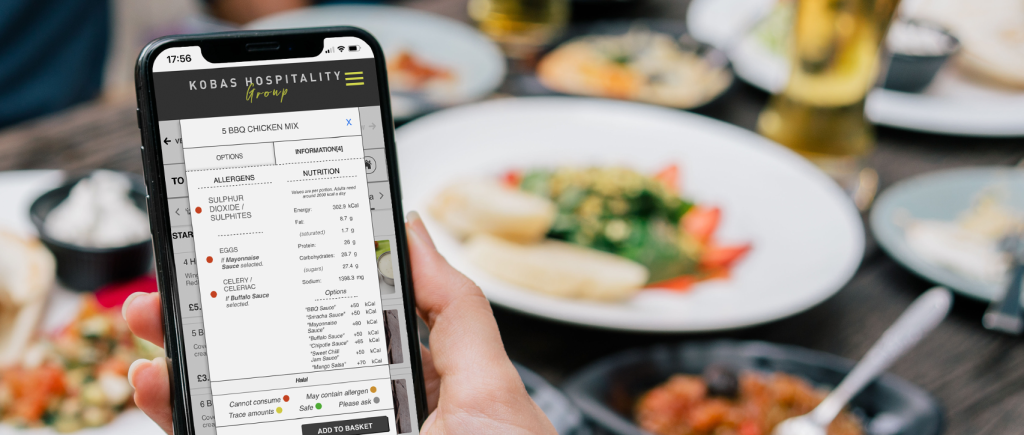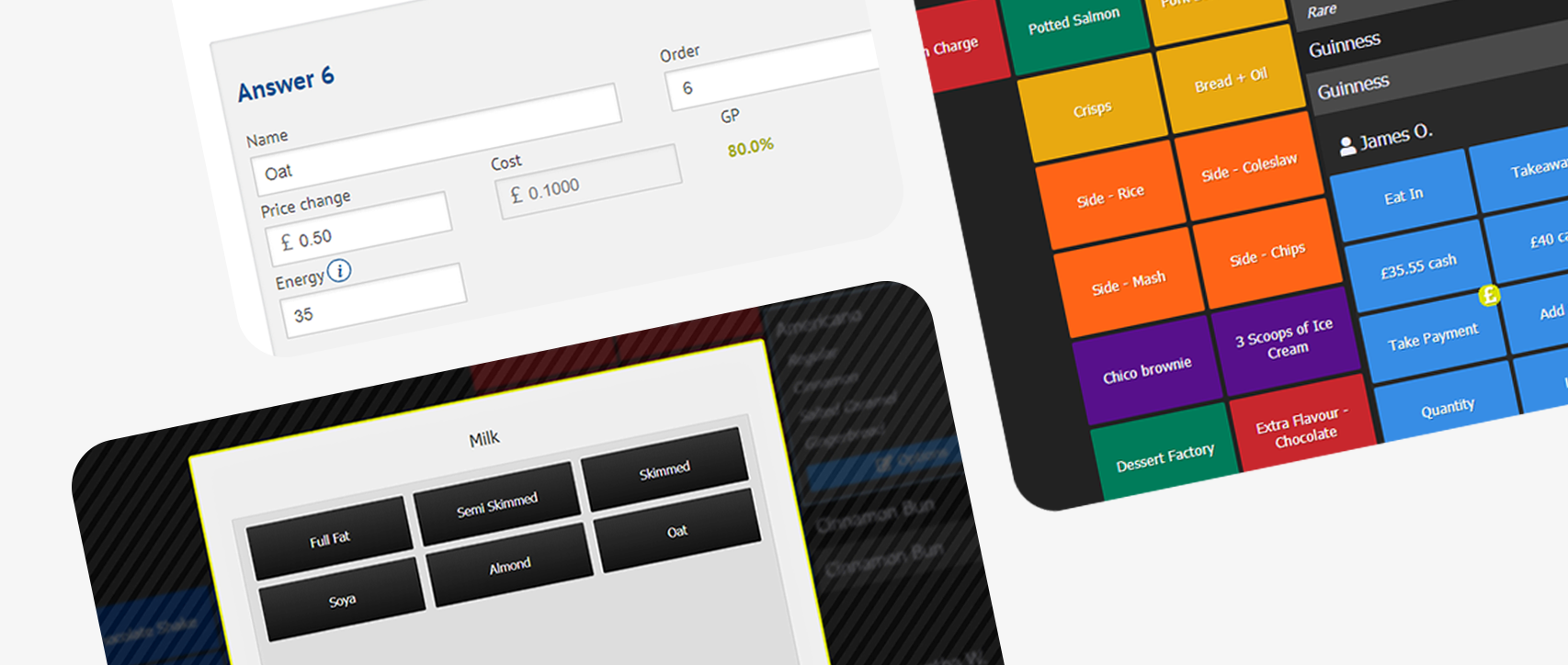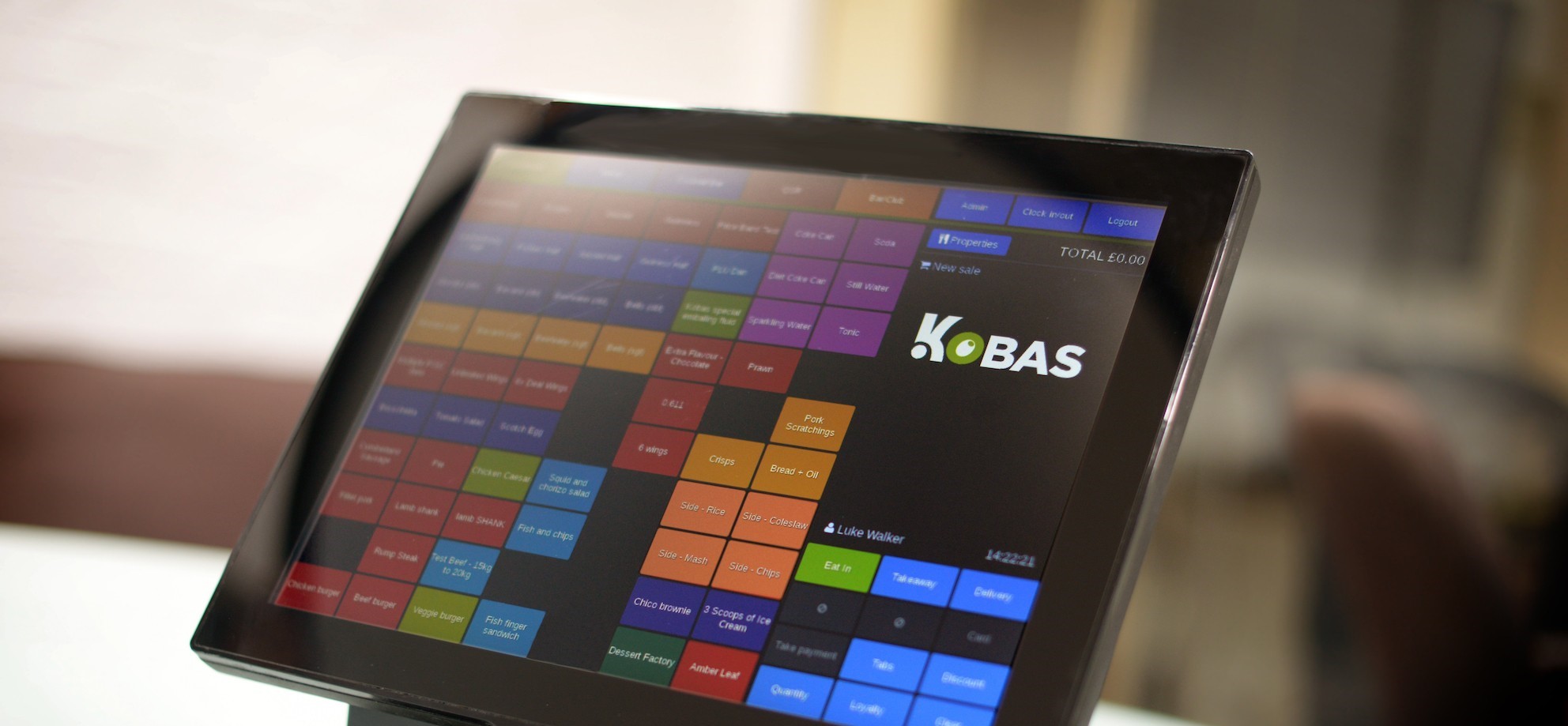Natasha’s Law is in full force after coming into effect on the 1st of October 2021, helping to protect those with allergies when purchasing PPDS (prepacked for direct sale) food.
This has continued to raise discussions around the food laws currently in place for hospitality businesses that do not sell pre-packaged food on-site. How are restaurants and other eateries communicating clear allergen information to their customers, and how can technology help?
Currently, hospitality venues that prepare food on-site for customers, must state if the food and drink being sold contains any of the 14 most common allergens in writing. As customers, we often see this displayed on hard copy menus which can become outdated when recipes change and will therefore require continued re-prints.
When it comes to managing allergen information, many operators are still manually updating spreadsheets or using a stock system that doesn’t integrate with other platforms, which can result in significant inefficiencies and reduced customer transparency.
The reality is, it doesn’t need to be complicated for customers or operators. With connected technology in place, managing and communicating accurate allergen information can be easy and efficient. Here’s how.
Build easy-to-manage allergen profiles

Most modern stock and recipe engineering systems contain allergen and dietary profiling features to help teams create and manage up-to-date allergen profiles against menu items.
Our approach:
- Operators build recipes from allergen-assigned ingredients, all from one system – Kobas Cloud. From here, the system will use that information to automatically build an item’s allergen profile. Need to change an ingredient within an item’s recipe, or add another? The allergen profile will be updated accordingly.
- Assign vital precautionary labels against menu items such as contains, may contain and traces of, alongside dietary labels including gluten-free, halal, kosher, vegetarian, vegan, alcohol-free and many others.
- Manually updating spreadsheets is a thing of the past with Kobas. Allergen profiles are stored in the cloud, making it easier than ever to access and manage information.
- When saving a recipe in Kobas Cloud, the system will recognise if no allergens have been assigned and prompt the user to take action by selecting one of the following options:
- Confirm the item has no allergens – if this option is selected, a notice will appear in the online ordering app with “this item is allergen-free”.
- Add allergens later – if this option is selected, a notice will appear in the online ordering apps with “please ask our staff about allergens for this item”.
- Cancel – if this option is selected, the item will not be saved and the member of staff can check over the allergen profile.
Automate allergen profiles with your customer-facing technology

Building allergen profiles within your system is just part of the picture. The next important step is getting that information in front of your customers to provide complete allergen transparency.
When using a connected and complete hospitality system, allergen information seamlessly syncs from your recipes in the cloud and straight to your customer-facing applications.
Our approach:
- Allergen profiles are automatically synced from Kobas Cloud to your online ordering applications powered by Kobas. When customers browse through your menu via the mobile ordering app (including to table, delivery or click & collect), they can quickly learn more about an item’s allergen profile within the dedicated allergens and dietary tab.
- Product modifiers (PISCs) are built from allergen-assigned ingredients too. If the allergen status of a dish changes when a specific option is selected, this will be stated clearly within the allergens and dietary tab on your customer-facing app.
- Your Kobas application also features an allergen identifier tool. When using this, customers can select their specific allergens and/or dietary requirements and view a colour-coordinated menu, helping them to identify items that are suitable for them.
- Not using the Kobas app for ordering? No problem. The allergen identifier can be used on its own. Many of our clients provide accurate allergen information to guests by viewing the identifier app from the same tablet device that they use for Mobile POS. No need to check packaging or printed sheets! Better yet, if you want to give your customers full access to this interactive and easy allergen identifier, add QR codes to your tables, allowing them to scan it with their device’s camera and browse allergen information in seconds. This can also be added to your food-to-go packaging.
The existing food laws in place for restaurants and other eateries outline what businesses must do to provide allergen information to customers, but it is left in the hands of operators to implement effective communication channels to keep that information up-to-date and accurate. Doing this is crucial as unreliable processes can result in human error and miscommunication, putting visitors with allergies at risk and even with potentially harmful consequences.
With the help of intuitive technologies that are equipped with allergen-specific features, businesses can streamline management processes whilst reducing the risk for customers with allergies. All in all, keeping everyone well informed with reliable, up-to-date and easy-to-access information.
More information about Natasha’s Law
Natasha’s Law offers increased protection for customers when purchasing PPDS (prepacked for direct sales) food, which legally should display the ingredients list on the packaging with allergenic information emphasised.
To learn more about allergen laws, please see official resources including the below:
Allergen labelling changes for PPDS food
Information for fast food and takeaways
Want to discover how Kobas can add value to your business?
Speak with a member of our team to experience our complete hospitality system in action.


